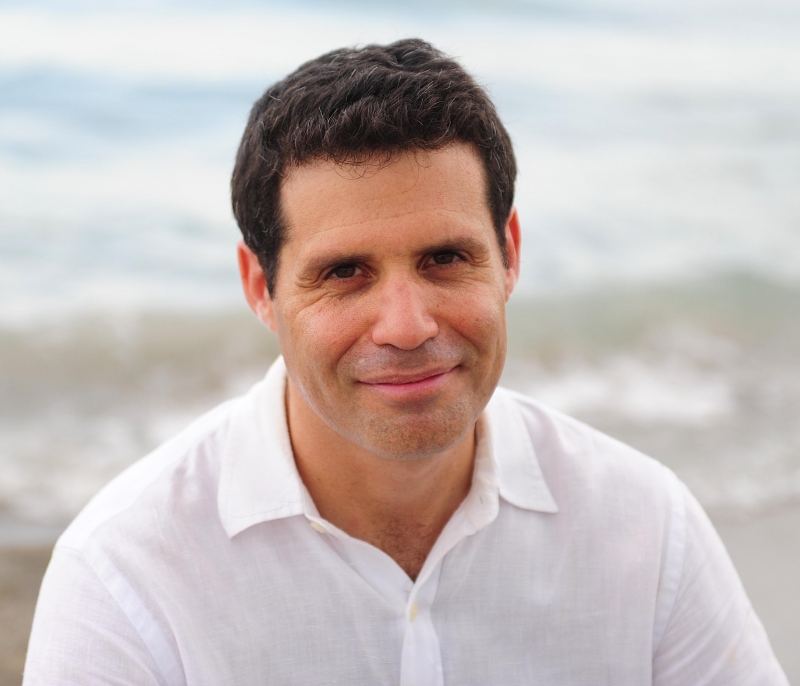Making a Mistake When Reading Torah
Making a Mistake When Reading Torah
 Many B’nei Mitzvah students worry that they may make a mistake when reading from Torah. It is indeed a valid concern. Reading from the actual Torah scroll is a difficult task, even for those with a great knowledge of Hebrew. In contrary to the printed copies of the Bible we use on a regular basis, the text in the scroll has no vowels, no punctuation (not even a period at the end of the sentence!) and no cantillation marks (which determine the melody). When a student expresses her or his concern about mispronouncing a word, I normally ask what would happen if they did? To which many answer, “Nobody will know, right?”
Many B’nei Mitzvah students worry that they may make a mistake when reading from Torah. It is indeed a valid concern. Reading from the actual Torah scroll is a difficult task, even for those with a great knowledge of Hebrew. In contrary to the printed copies of the Bible we use on a regular basis, the text in the scroll has no vowels, no punctuation (not even a period at the end of the sentence!) and no cantillation marks (which determine the melody). When a student expresses her or his concern about mispronouncing a word, I normally ask what would happen if they did? To which many answer, “Nobody will know, right?”
Without getting into the philosophical issue of the meaning of making mistakes when there are no witnesses, the children are right. The likelihood of their error to be noticed is slim. And even if Uncle Sheldon will detect the mispronunciation he will probably not have a temper tantrum over it. But what about kids in Israel? Over there everyone in the congregation speaks Hebrew and tends to follow the reading holding a vowelled, punctuated and cantillated (yes, it’s a real word) copy of the Torah. To make things even more terrifying for the Bar/Bat Mitzvah, the tradition is for the worshipers to loudly correct any mispronunciation, omission or addition of a word. While the practice is intimidating even for adults, it is particularly terrifying for 13 year-old children who grew up in a secular environment (as most Israelis do) and even with some training are not so familiar with the ancient Hebrew.
Several years ago, a young man who had lost his father and didn’t have a Bar Mitzvah at the age of 13 decided to do it when he turned 15. As he began to read from the Torah the crowd shouted corrections at him, and as a result he became too flustered to continue. He left the synagogue in the middle of the service and never stepped foot in there since. This story led an important Orthodox Rabbi, Yonatan Raziel, to rule a Halacha (a Jewish law) that “loudly correcting a mistake during the Torah reading is prohibited under Jewish law, due to the provision against causing public embarrassment.” In other words, not embarrassing the reader takes priority over the correctness of the reading.
When I read Rabbi Raziel’s ruling I was astonished and inspired by his courage and integrity. For Liberal Jews it might sound like a no brainer, but for observant Jews it is a paradigm shift. The leading legal authority of all times, Maimonides (Rambam) reasoned over 800 years ago that a mistake in the Torah reading nullifies the entire public's obligation to hear the reading. But Rabbi Raziel holds that it is better that the public not fulfill its obligation than to be guilty of embarrassing another person.
I’m sure that it was a hard decision to make and the Rabbi knew that he would be criticized by many in his own community. Reading the Torah accurately has always been an important virtue of our tradition, but as he taught us, not important enough to allow public humiliation.
B’Shalom,
Rabbi Alon Levkovitz
Fri, October 3 2025
11 Tishrei 5786
Upcoming Events
-
Friday ,
OctOctober 3 , 2025Shabbat Services
Friday, Oct 3rd 6:30p to 7:30p
-
Saturday ,
OctOctober 4 , 2025Men's Club Weekly Walk & Brunch
Shabbat, Oct 4th 9:30a to 11:00a
-
Sunday ,
OctOctober 5 , 2025Sukkah Building
Sunday, Oct 5th 10:00a to 12:00p
-
Monday ,
OctOctober 6 , 2025Men's Monday Weekly Lunches
Monday, Oct 6th 12:00p to 2:00p
-
Monday ,
OctOctober 6 , 2025Commemorating October 7th Program
Monday, Oct 6th 6:00p to 8:30p
-
Tuesday ,
OctOctober 7 , 2025TBA and TOS Closed
Tuesday, Oct 7th 12:00a to 11:55p
-
Wednesday ,
OctOctober 8 , 2025Mah Jongg
Wednesday, Oct 8th 1:00p to 4:00p
-
Thursday ,
OctOctober 9 , 2025Seasons of Strength in Mussar
Thursday, Oct 9th 11:00a to 12:30p
-
Thursday ,
OctOctober 9 , 2025Canasta
Thursday, Oct 9th 1:00p to 3:30p
-
Friday ,
OctOctober 10 , 2025Shabbat Service with Sukkot Celebration and Board Installation
Friday, Oct 10th 6:30p to 8:30p
Update this content.
Come Together
Something meaningful and dynamic is happening here at Temple Beth Am. It springs from the warmth of our welcome and the energy of our actions. We call it: Kulanu - All of Us Together.
Join UsUpcoming Events
-
Friday ,
OctOctober 3 , 2025Shabbat Services
Friday, Oct 3rd 6:30p to 7:30p
-
Saturday ,
OctOctober 4 , 2025Men's Club Weekly Walk & Brunch
Shabbat, Oct 4th 9:30a to 11:00a
-
Sunday ,
OctOctober 5 , 2025Sukkah Building
Sunday, Oct 5th 10:00a to 12:00p
-
Monday ,
OctOctober 6 , 2025Men's Monday Weekly Lunches
Monday, Oct 6th 12:00p to 2:00p
-
Monday ,
OctOctober 6 , 2025Commemorating October 7th Program
Monday, Oct 6th 6:00p to 8:30p
Privacy Settings | Privacy Policy | Member Terms
©2025 All rights reserved. Find out more about ShulCloud

